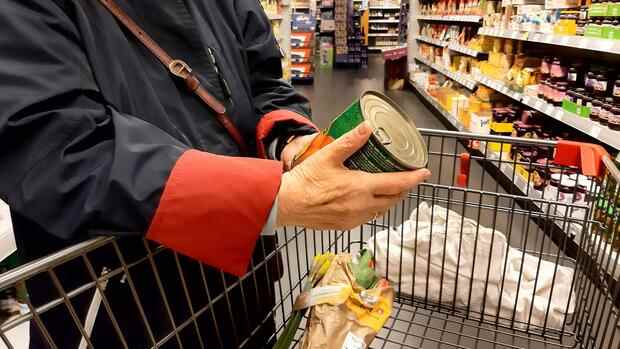One end is not foreseen. Aldi has announced higher prices, as has the bakery – to name just a few. “The second wave of price increases is coming, and it will certainly be in the double digits,” announced the President of the German Retail Association (HDE), Josef Sanktjohanser.
Politicians are also preparing citizens for the fact that they will probably have to spend a larger part of their income on food in the long term. “In any case, you have to assume that some foods will become more expensive,” said Minister of Agriculture Cem Özdemir in an interview with the magazine “Spiegel”.
But politicians apparently do not want to intervene in the market. Instead of capping prices, Özdemir brings into play that low earners should be relieved. Otherwise, the minister advises citizens to eat less meat, as nutrition experts would recommend. It also cannot be the case that almost 60 percent of grain production in Germany ends up as animal feed.
Top jobs of the day
Find the best jobs now and
be notified by email.
The Green agricultural politician Renate Künast takes a similar line. She complains that the Hartz IV rates for food expenses have long been calculated far too low. But the citizens would also have to come to terms with rising prices. “For too long, as a society, we have become accustomed to spending less and less money on groceries. The appreciation for food and the work of the farmers behind it must also be reflected in reasonable prices,” says Künast.
CDU attacks Minister Özdemir
Even the CDU swears that the population will continue to rise in price – but gives the minister part of the blame: “Because he is currently doing little to reduce production costs, but rather provides for stricter requirements for farmers, we will have to get used to more expensive food.” , said the agricultural policy spokesman for the Union in the Bundestag, Albert Stegemann, to the Handelsblatt.
“Higher energy prices lead to higher food prices – especially when goods are in short supply on the market, as is now the case with the war in Ukraine.” Farmers would not benefit from this because they themselves would be affected by higher prices for diesel or fertilizers.
>> Also read here: Aldi raises prices
Despite the current shortage, Özdemir is adamant about the agricultural turnaround – the war should not be an excuse to ease up on the conversion. His only concession: he allows grass and plants from “ecological focus areas”, i.e. those that serve the recovery of the soil, to be used as fodder this year. These areas make up five percent of the agricultural area, a total of 1.2 million hectares.
The federal states, on the other hand, refer to the “strategic importance” of domestic food and agriculture. In Germany, too, it is important to cushion the sharp increase in food prices, according to the minutes of a meeting between the prime ministers and Chancellor Olaf Scholz on Thursday. There they demanded that the federal government must allow the existing potential of agriculture to be used consistently.
Seven states without Greens in the government, including Bavaria and North Rhine-Westphalia, specifically demanded that the priority areas should not only be used as pasture land, but also as arable land – including the use of mineral fertilizers and pesticides, as the EU wants to allow on a transitional basis. However, the Federal Council confirmed Özdemir’s stricter plans on Friday. A majority, however, did not come about.
A second point of contention is the set-aside of four percent of arable land ordered by the EU from 2023. Union and SPD countries want these set-asides to be suspended at least “temporarily”. Minister Özdemir counters that these set-asides cannot be postponed, even in view of rising prices and the war. Because “climate change and species extinction are crises that persist and worsen the longer there is no active action”.
Farmers’ association pleased with higher prices
The German Farmers’ Association is already pleased about the rising food prices: The adjustments are “overdue and reflect not only the current market distortions and cost increases in production, but also the first costs of the transformation process in the industry,” said Secretary General Bernhard Krüsken. However, the money must not remain in the marketing and processing chain, but must also reach the companies.
Despite the war, the supply of food in Germany is not considered endangered anyway, emphasizes the minister. The situation is very different internationally: The United Nations warns that the food supply for around 40 million people in the Sahel zone and in West Africa is not guaranteed. “The region is facing an unprecedented and very complex food crisis,” said a spokesman for the UN World Food Program (WFP).
According to the UN Food and Agriculture Organization (FAO), international food prices reached a record level in March, as expected. From February to March alone, the FAO food price index increased by 12.6 percent. That was the second-highest rise in the index’s 70-year history.
Grains for bread, meat and vegetables in particular have become significantly more expensive, while rice, milk and sugar remain comparatively affordable. Even if the influence of the Ukraine conflict cannot be precisely quantified, “there is no doubt that the war plays an important role”.
More: “Prevent a new hunger crisis,” demands the Director General of the World Trade Organization in the Handelsblatt guest commentary
